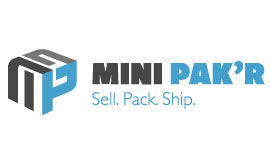Social media: What 7 different platforms can do for your business
Social media platforms have become more than just a way to keep in contact with your family and friends. These platforms have evolved into something that can make or break your company. With social media, you can target your exact audience and customer base with just a few clicks.
However, not all platforms are created equal! Take a look below and read up on what platforms may be the best for you and your company.
1. Facebook
Facebook is probably one of the most well-known social media platforms. Facebook is known for its older and vocal audience. Have you ever noticed how the comment section on a post on Facebook can get crazy in a matter of seconds? As you can imagine, this can work for or against you as you. Facebook gives people the ability to easily share content on their pages or with their friends and family. With one click, your post on your business page could be all over the world.
Facebook is right for you if your audience skews older (35 and above) than the coveted 18-25 set. While young people are on Facebook, but they aren’t as engaged as older users.
Facebook offers advertising tools that can help advance your business. You can create highly targeted ads and boost specific posts in order to gain extra attention, clicks, and conversions. Even if the majority of your audience isn’t on Facebook, it’s still a smart move to have a presence on the platform. Having a Facebook profile gives people another way to contact you and gives customers an easy way to interact with your business. Just be sure to keep your page active and current: One of the worst things you can do is create a page and then forget about it. You don’t need to post every single day, but a few times a week will give your customers confidence in your products even if you don’t have a ton of followers.
2. Twitter
Twitter relies on words and your ability to tell a story in 280 characters or less. If you don’t consider yourself a wordsmith, you should think about hiring someone who is. With Twitter, you need to be able to get your point across in the most succinct way possible. Twitter’s audience is fairly young, with around 36% of online adults users aged 18-29, and fairly educated, with most users holding college degrees.
Like Facebook, Twitter enables you to run ads to promote your content and company. However, it is a lot more rare to see an ad on Twitter than Facebook. Why? They simply don’t work as well. If you’re thinking ads, Facebook is the way to go.
3. Instagram
Instagram is a very visually driven platform, with photos and videos taking center stage. If your products are bold, bright, interesting, or just plain visually compelling, Instagram is the platform for you. The sheer number of users on Instagram users is outstanding, with more than 800 million Instagram accounts worldwide. Most users are active every single month, with more than 500 million users every day. A whopping 80% of accounts follow a business, and more than 300 million accounts use Instagram Stories every day. Instagram is the perfect way to bridge the gap between your company and your customers. Your customers will become immersed in your product through your photos and videos and will see you as an actual person rather than a product. A bond with your brand can go a long way.
4. Pinterest
What’s the perfect platform for DIY projects and anything food-related? Pinterest. Pinterest is a unique platform where people “re-pin” pins (posts) to their own Pinterest account “boards.” A lot of people use this platform as a way to plan events such as weddings or birthdays. It’s kind of like a tool you can use to remind yourself of something, so you don’t forget it for the future. It’s interesting because the way Pinterest is designed, it’s a less direct form of communication between you and your customer, and far less conversational. You aren’t directly asking anything of anyone. You are simply putting your products out there as pins, giving customers the option to interact with them. Pinterest is another platform that relies heavily on your ability to entice people visually. But, unlike Instagram, Pinterest’s visuals rely more on curation through the use of boards. Instagram’s audience also skews younger, while Pinterest tends to skew older. If you are looking for a platform where you can upload a large number of product photos, Pinterest may be for you.
5. Tumblr
Tumblr is a hybrid of a social media and blogging platform. Its audience skews very young, drawing in teens and tweens. Unless your company is geared toward teens, Tumblr may be a hard platform to break into. However, some brands have created amazing Tumblr accounts—Disney and GQ are a few successful examples.
6. YouTube
YouTube is for all things video. If high-quality videos aren’t a part of your marketing plan, YouTube likely isn’t a fit for you. Videos are a powerful way to show off your product and company because they can show more than just a photo. When done well, videos have the ability to capture attention for longer than a few seconds and give your customers a better picture of what you can provide them.
7. LinkedIn
If you own a company, it should be on LinkedIn. It’s the ultimate tool for when you are looking to hire people for your company, or simply want to provide information on your business to the world. The people who use LinkedIn skew more male with a high dose of students and recent graduates (39 million!). This platform is especially helpful if you are looking to grow your staff. It is an unparalleled tool when it comes to evaluating your prospective employees. You can also post status updates on LinkedIn, but the majority of people use it as a way to stay connected with people they work with—or hope to work with.
CONCLUSION
Social media is an excellent way to expand your company’s reach. Social media does more than just give you a way to post about your business, and it gives you a way to humanize yourself and interact with the people that matter most: your customers. Remember that not all social media platforms are created equal, and some may be better suited to your business than others. There is no harm in starting an account on any given platform as long as you keep it updated and accurate. Find your voice with social media, and you will be spreading the word about your products in no time.

